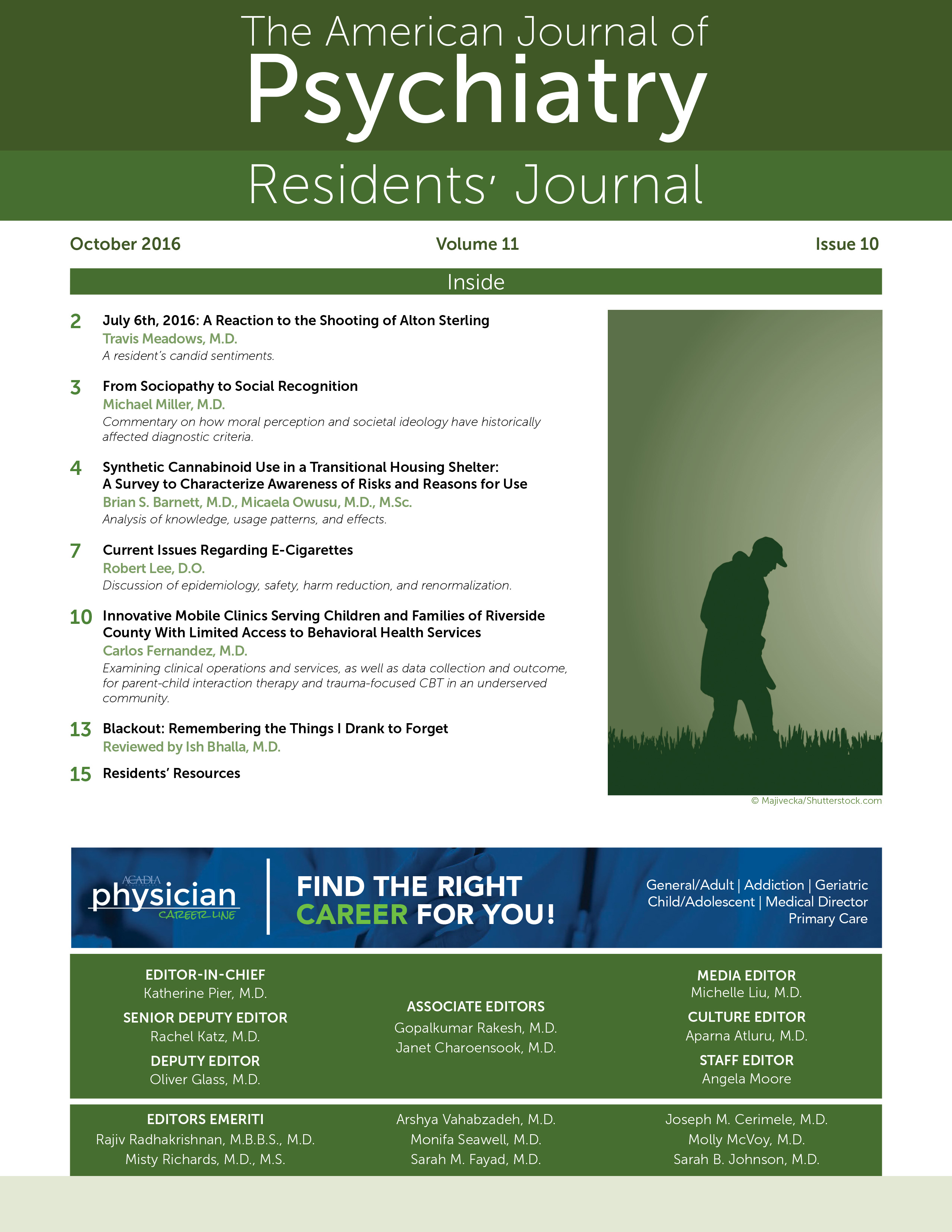The Supreme Court's
Obergefell v. Hodges guarantees the right of homosexual individuals to marry, a nearly unbelievable event when one considers that just over 40 years ago, being homosexual itself was considered a mental illness. Until 1974, homosexuality was listed in the DSM as a mental disorder. Originally classified as sociopathic and “ego-dystonic,” homosexuality remained a diagnosis until 1987. Today, the American Psychiatric Association explicitly states its view on homosexuality, indicating that same-sex orientation has unclear origins, does not impair an individual's judgment or functioning in itself, and does not (and should not) call for psychiatric treatment (
1).
The case of homosexuality raises an uncomfortable but critical question: What is mental illness? This is not a new question, and the answer remains unclear. The DSM draws the line at when clinical distress or functional impairment occurs, using criteria “based largely on social norms, with 'symptoms' that all rely on subjective judgments” and “reflect current normative social expectations” (
2). Concerns about pathologizing the normal have come up repeatedly, embodied by the British Psychological Society's statement noting the “continued and continuous medicalisation of [the public's] natural and normal responses to their experiences […] which do not reflect illnesses so much as normal individual variation” (
2).
Homosexuality is not the first condition dubiously deemed a mental disorder. In the 19th century, African slaves who attempted to run away were said to suffer from
drapetomania, with the prescribed treatment of the removal of both great toes (
3). Instances have also been described of housewives refusing to do housework, with resulting hospitalization and ECT (
3). In the 1970s, accusations of corruption by the U.S. Attorney General's wife toward the Nixon administration were dismissed as delusions, only to be later verified in the Watergate investigation. The case coined the eponymous “Martha Mitchell effect,” in which mental health providers dismiss true claims by their patients as symptoms of illness (
4). This effect was seen more recently when psychiatrists used a Long Island woman's descriptions of her Twitter account as evidence for her mania. Her claims were later found to be factual, but only after her 8-day involuntary stay at a hospital with medication (
5).
What can be done to help circumvent such “diagnoses”? Clinicians should attempt an objective exam using the form of the presenting phenomenology, rather than the content, while acknowledging cultural context and attempting to gain collateral information. Concurrently, psychiatry as a field should continue its search for specific biomarkers and imaging through projects like the BRAIN [Brain Research through Advancing Innovative Neurotechnologies] Initiative, both for more valid measures of disease and to avoid fad diagnoses or clinician bias.
Views on homosexuality have shown a remarkable turnaround: what was once considered a “sociopathy” is now socially recognized. Psychiatric syndromes are almost always idiopathic, and questions of moral perception or social acceptance are irrelevant to accurate diagnosis. Clinicians must strive for a diagnosis based on the patient's presenting symptoms, rather than social or personal bias, to ensure that treatments are helpful to patients and to avoid the misuse of authority by the psychiatric profession.
